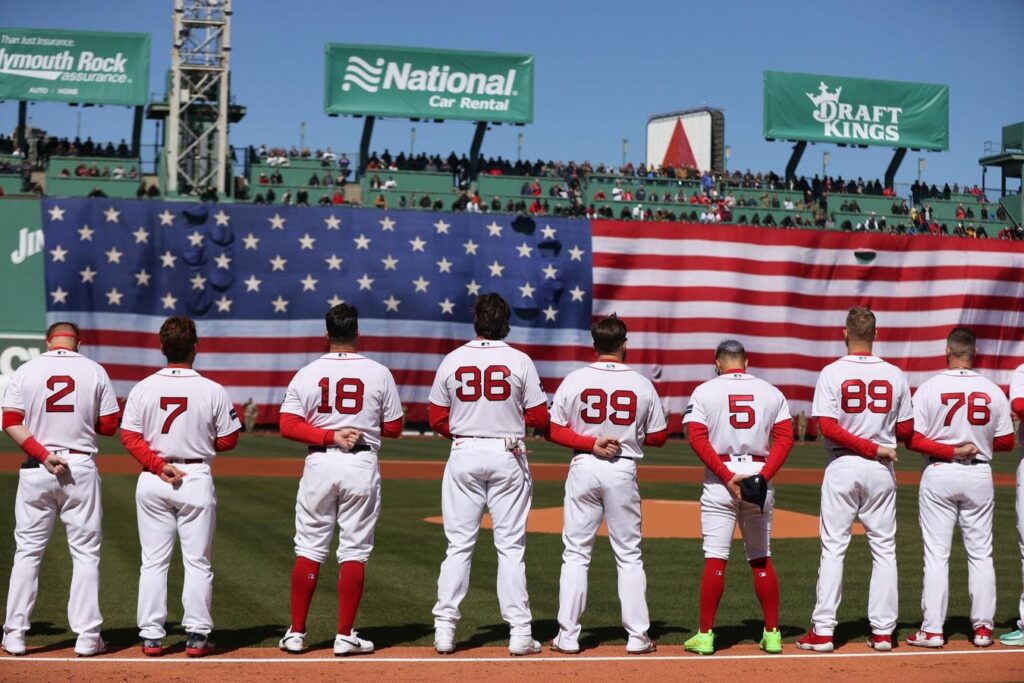As we have rolled past Opening Day of the 2025 Major League Baseball season, fans across the country are filled with hope and excitement for the season ahead. With every new season comes the promise of fresh opportunities, big hits, and maybe even a World Series Championship. But while fans are cheering for home runs, there’s another game being played behind the scenes—one that involves taxes, contracts, and the financial side of the sport. Baseball, like any major industry, is not exempt from the complexities of taxation. In fact, the relationship between baseball and taxes is as intricate as a well-executed double play. Understanding how baseball intersects with taxation sheds light on the business side of the sport, from player salaries to team revenues, and even stadium construction. Let’s dig into how taxes play a significant role in the world of baseball.
Player Salaries and Tax Implications
One of the most visible aspects of baseball’s relationship with taxation involves player salaries. Major League Baseball (MLB) players are among the highest-paid athletes in the world, and their income is heavily taxed. The tax burden on baseball players is more complex than it might seem at first glance, especially for players who work in multiple states during the course of a season.
A professional baseball player’s salary is subject to federal income taxes, but also to state and local taxes, which vary widely. For example, players who play for teams in states like California or New York face higher state income taxes than players in states like Texas or Florida, where generally there is no state income tax. This situation is known as the “jock tax,” a term used to describe the practice of taxing athletes based on where they earn their income. As players travel to different cities and states to play games, they often find themselves owing taxes in multiple jurisdictions, creating a complicated tax filing process.
To alleviate some of this burden, many MLB teams structure contracts with tax considerations in mind, negotiating terms that allow for some tax relief. For example, certain benefits, like performance bonuses, may be structured to minimize tax exposure. However, the sheer scale of players’ earnings and the number of different tax jurisdictions involved can still result in a considerable tax liability. As a result, many players employ tax professionals to help navigate the complexities of their financial situation.
Teams and Revenue Generation
Beyond player salaries, MLB teams generate significant revenue, and that income is potentially subject to taxation as well. Revenue sources for baseball teams include ticket sales, broadcast rights, merchandise sales, and sponsorships. Each of these revenue streams is potentially taxed based on where the income is generated. For example, ticket sales for a game at a stadium in Boston are subject to Massachusetts state taxes. Additionally, teams that own regional sports networks or have broadcasting deals also face taxes on the income generated from those ventures.
Furthermore, the owners of baseball teams are responsible for paying taxes on the profits the team generates. Depending on the legal structure of the team’s ownership—whether it’s an LLC, corporation, or other entity—the tax implications can vary. The taxation of baseball teams and their owners can also extend to capital gains taxes, particularly if a team is sold or there are significant changes to ownership. The potential for large profits in the sale of a team can lead to substantial tax liabilities for the owners, making a “home run” deal even more costly.
Stadium Construction and Tax Incentives
Another area where baseball intersects with taxation is in the construction and renovation of stadiums. Building a new baseball stadium can cost hundreds of millions of dollars, and municipalities often use a combination of private and public funding to finance the project. In many cases, local governments issue bonds or provide tax incentives to attract and support the development of new stadiums. These incentives can take the form of tax-exempt bonds, tax credits, or subsidies, which allow owners to lower the costs associated with building a new facility.
While these incentives can help reduce the financial burden on team owners, they also spark debates about whether public funds should be used to subsidize private entertainment ventures. Critics argue that the tax breaks for stadium construction do not always result in the promised economic benefits for local communities, such as job creation and improved infrastructure. On the other hand, proponents argue that a successful stadium can generate significant long-term revenue for the local economy, including through tourism, local spending, and increased property values.
Conclusion
Baseball and taxation are inextricably linked, with taxes affecting every level of the sport—from players to teams to stadium construction. The taxation of athletes, team revenues, and stadium projects reflects the broader economic impact of baseball as a multi-billion-dollar industry. As the sport continues to evolve and grow, so too will the tax laws and policies that govern its financial landscape. For fans and players alike, understanding how baseball intersects with the tax code provides valuable insight into the business side of the sport, where every swing of the bat and pitch on the mound has far-reaching financial implications. Whether it’s the salary negotiations or the revenues from a packed stadium, the financial game off the field is one that keeps teams and players on their toes.
Read the full article here

